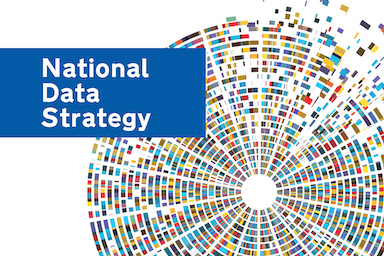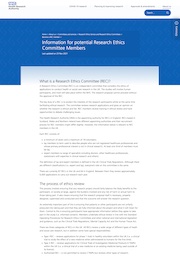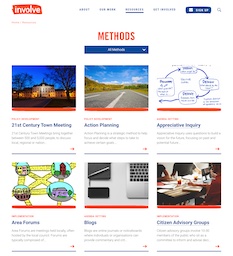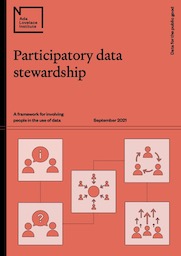Communities should be involved in making decisions about data
We should make collective decisions about…

What data
is collected
How data
is used

Who data
is shared with

When data
is deleted
We need a collective say in the choices we’re presented with as individuals

Which choices
we are given

What the
defaults are

How choices
are presented

Choice architecture is the design of different ways in which choices can be presented to consumers, and the impact of that presentation on consumer decision-making. For example, each of the following:
- the number of choices presented
- the manner in which attributes are described
- the presence of a “default”
can influence consumer choice.
Models for making these collective decisions already exist

existing democratic
processes

trusted
institutions

representative
ethics boards
public
participation
Decisions are made democratically by our elected representatives, such as MPs or local councillors
The National Data Strategy (NDS) is an ambitious, pro-growth strategy that aims to drive the UK in building a world-leading data economy while ensuring public trust in data use.
Data is now the driving force of the world’s modern economies. It fuels innovation in organisations large and small, across the private, public and third sectors.
The NDS is a framework for the action this government will take on data. It is not the final answer, but part of a conversation about the way we support the use of data in the UK.
Decisions are made by trusted institutions, such as data cooperatives

Data institutions are organisations that steward data on behalf of others, often towards public, educational or charitable aims. In order to explore data institutions, it’s important to first understand the concept of data stewardship and how it fits into our theory of change. In this blog, we explain the concept of data stewardship, what data institutions are and the vital roles they play.

Various ‘data stewardship’ models are emerging, including data trusts, with a fiduciary duty to their data subjects, as well as personal data management services, which have a contractual relationship with the individual. However, it is collectively controlled organisations, such as data cooperatives and data collectives, that may offer the best opportunity for data subjects to have the greatest control over how their data is collected, pooled, processed, and shared.


Everyone should decide how their digital data are used — not just tech companies
Jathan Sadowski, Salomé Viljoen and Meredith Whittaker
In our view, the current model, in which the digital traces of our lives are monopolized by corporations, threatens the ability of society to produce the rigorous, independent research needed to tackle pressing issues. It also restricts what information can be accessed and the questions that can be asked. This limits progress in understanding complex phenomena, from how vaccine coverage alters behaviour to how algorithms influence the spread of misinformation.
Organisations set up independent ethics boards with lay members from affected communities
A Research Ethics Committee (REC) is an independent committee that considers the ethics of applications to conduct health or social care research in the UK. The studies will involve human participants, and most will take place within the NHS. The research proposal cannot proceed without the approval of the REC.
The key duty of a REC is to protect the interests of the research participants whilst at the same time facilitating ethical research. The committee reviews research applications and gives an opinion on whether the research is ethical and fair. REC members receive training in ethical review and have opportunities to debate challenging issues.
Organisations use participative methods such as citizen juries
Involve is the UK’s leading public participation charity. They develop, support and campaign for new ways to involve people in decisions that affect their lives.
They maintain a comprehensive catalog of different public participation methods along with their costs, strengths and weaknesses.
This report proposes a ‘framework for participatory data stewardship’, which rejects practices of data collection, storage, sharing and use in ways that are opaque or seek to manipulate people, in favour of practices that empower people to help inform, shape and – in some instances – govern their own data.
